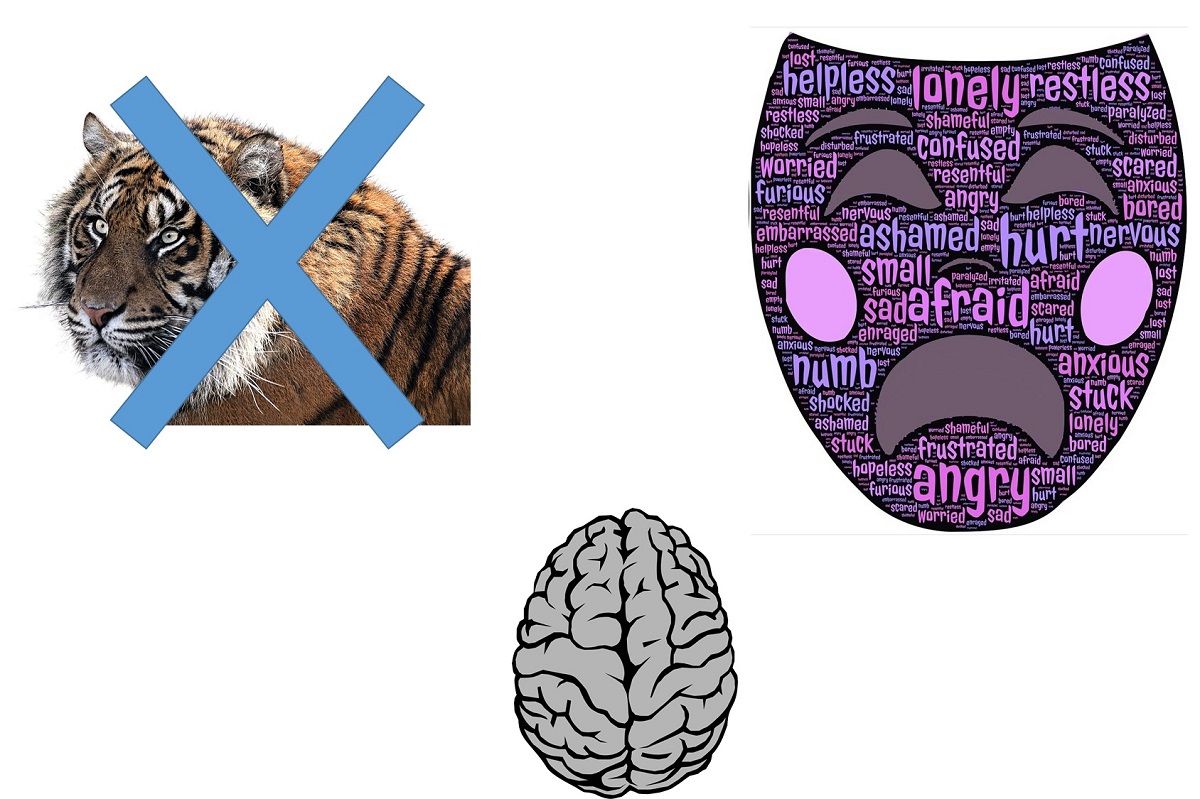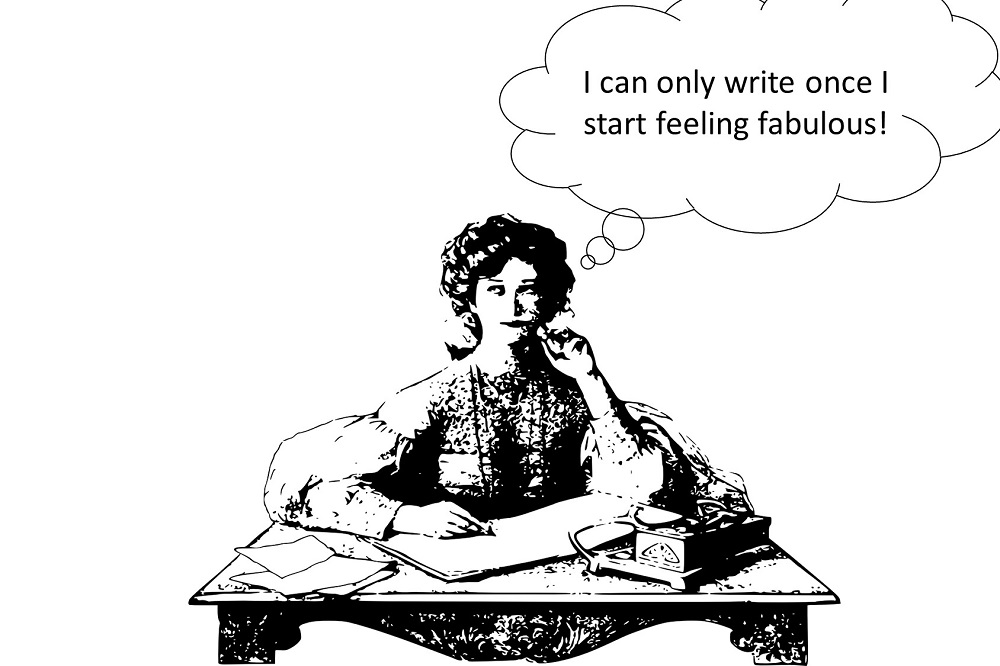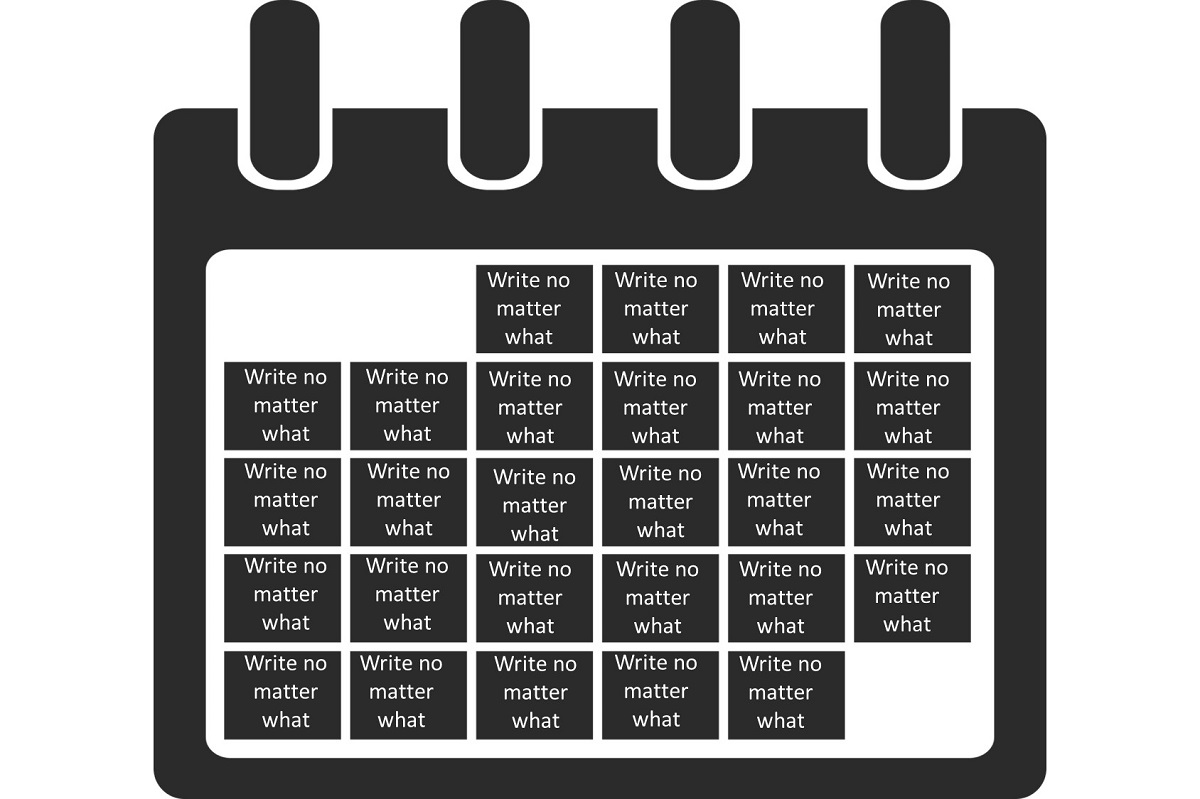
A self-defeating belief is an internal rule we hold that gets in the way of our wellbeing or productivity.
They typically take one of two forms: either a conditional statement or an outright statement.
A conditional statement involves two components, with one being dependent on the other.
For example – ‘I never have fun at parties’ – where ‘fun’ is impossible in the presence of ‘parties’.
An outright statement is a expression of self, other, the world or the future as being in some immutable state.
For example – ‘I am stupid’, ‘people are cruel’, ‘the world is unfair’, or ‘the future is doomed’.

When you think about it, it seems kinda strange that humans would hold beliefs that set them back.
But we do.
Exactly why this is the case is the topic of a pretty interesting conversation, which if you catch me wandering around one-day you are welcome to raise.
But put simply, it is something along the lines of the following.
Your brain is very good at constructing rules that keep you alive (e.g. don’t step out in front of traffic). To do this, your brain tends to focus a little more on detecting and eliminating threat than it does on things that are going right.
This is great if you are in settings of high physical danger, but most of us aren’t in such situations anymore. So instead your brain starts finding danger in the psychological realm (e.g. avoiding rejection, humiliation, embarrassment, boredom).
It develops beliefs and rules that seek to avoid short-term negative psychological states. Which is very nice of it to do, but whilst these beliefs and rules work in short-term, they often have deleterious effects in the long-term and hold us back from being the best version of ourselves.
Also brains can be quite reluctant to let go of such beliefs once they have formed, even when it is clear they aren’t working in our favour.

A belief/rule that I come across regularly in the context of talking with students around their studies involves the relationship between how they feel, and how effectively they can write.
The belief takes the form something like this “I must feel a certain way to write or study well‘. Because a large amount of what is done in a degree is writing and reading, this belief can be incredibly deleterious.
This is a belief that I have had to mindfully address in my own life and still regularly battle with on occasions.
Now you might be reading this and thinking ‘I don’t hold that belief‘, but take a moment to check whether or not you might hold a similar belief/rule.
The belief doesn’t always manifest itself in a very obvious way, but its effects can be seen when:
- We have a general tendency to use our ‘energy level’ rather than strict scheduling to work out when we will study/write.
- We sit down to study, feel bored and start surfing the web or another activity
- We keep delaying a piece of work until we feel more ‘enthused’ or ‘creative’.
- We keep convincing ourselves that we must do ‘more research’ before getting started on writing an assignment.
- We only write when we are in a panic – e.g. the night before the assignment is due.
- When we contemplate starting writing, we get a sense of dread or anxiety and a strong desire to avoid writing.
- We sit down to start writing but then get excited about something else and go do that instead.
- We find ourselves constantly using the excuse of ‘lack of motivation’ or ‘willpower’ when explaining why we are behind.
All of these imply an underlying rule/belief that effective writing only occurs when we feel a certain way. This belief (and variants of it) holds us back from writing, and because writing is critical to both your learning and progression through your degree, it holds you back from moving forward in your life. Furthermore it prevents you from getting better at writing, because you only ever write under the same circumstances (for many students, this is the state of panic the night before).
Now I want to be clear that some degree of self-distraction when writing is pretty normal. Whilst writing this post, I have spent many minutes staring out the window contemplating the majesty of trees.
It becomes a problem though when you are consistently delaying the process of writing and it is having negative consequences – i.e. failing assignments because of not handing them in or submitting poorly written assignments because you’ve not allocated enough time.

What do you do with this self-defeating belief?
Beliefs feed on confirmatory evidence and are quite sneaky in obtaining that evidence.
So every time you go to start writing but then avoid it because of how you feel, the belief grows stronger. It says ‘see, I told you you can’t write when you are feeling ______(insert emotion)‘.
Every episode of writing avoidance strengthens the belief and increases the likelihood of future writing avoidance.
So you need to provide your brain with some counter-evidence.
Book times into your diary for writing, and no matter how you feel at the time, use that time to write. Some people like to set themselves a ‘word count’ goal (e.g. I have to write a certain number of words). I prefer to use ‘task’ goals, so instead of saying I need to write 500 words, I will say to myself I need to write the introductory paragraph of a piece that I am working on. It forces me to focus on the content of the writing, and not so much the number of words.
Do this repeatedly.
And, if there are occasions where you struggle to write anything during these times (which I can guarantee will happen), don’t give up. Keep booking in times to write and keep forcing yourself to write, no matter what your mood.
Over time, you’ll discover that you have the capacity to write under many different emotional states: happiness, boredom, anger, fatigue. You might even learn that you write well when you aren’t feeling that great. For example, I find that I write well when I am feeling flat or down.
As you gather this counter-evidence – the belief ‘I have to feel a certain way to write‘ will slowly give way to something more along the lines of ‘My mood doesn’t really affect how well I can write‘.
At which point you will have released yourself from the shackles of that self-defeating belief.

Closing thoughts
I’ve talked about a very specific belief in this blog post, on that I suspect many people (including students) hold. It is certainly a belief that I held, which slowly started to whither away as I got more disciplined in forcing myself to write on a schedule, rather than on the basis of inspiration.
If you struggle with writing, particularly delaying or avoiding writing, it may be that you have other self-defeating beliefs operating as well. The other common one is ‘I am not a very good writer‘ which may at a superficial level be true (i.e. not getting good grades on assignments) but which is highly self-defeating because it assumes writing ability is fixed, and therefore negates you making efforts to both learn how to be a better writer (e.g. Student Learning Centre) but also practice writing, which is where a lot of the improvement happens.
I wrote at the beginning of this post how I find it a bit strange that humans develop these self-defeating beliefs. But when we have a brain that often prioritises short-term distress reduction, over long-term goals, it makes a bit more sense.
So I suggest that you thank your mind for it’s well intentioned efforts, but instead abandon it’s avoidance agenda and set forth to discover that you can indeed write effectively in many different moods, and the more you practice, the better you will get.
Speaking of writing……
Would you like to write for this blog? Is the topic of health and wellbeing interesting to you and would you like to write about how other students can look after their health and wellbeing? Get in contact with me and we can discuss how that might happen – gareth.furber@flinders.edu.au

